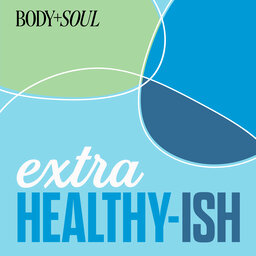Inner critic to inner wisdom: how to reorient your narrative
Women’s leadership expert and author Megan Dalla-Camina discusses the inner critic archetypes, how they play-out in everyday life and how you can rewrite your inner narrative.
WANT MORE FROM MEGAN?
Grab Megan’s book Women Rising (Wiley, $34.95) here, find her @megandallacamina or via her site here. Make sure you take her inner critic quiz here.
WANT MORE BODY + SOUL?
Online: Head to bodyandsoul.com.au for your daily digital dose of health and wellness.
On social: Via Instagram at @bodyandsoul_au or Facebook. Or, TikTok here. Got an idea for an episode? DM host Felicity Harley on Instagram @felicityharley.
In print: Each Sunday, grab Body+Soul inside The Sunday Telegraph (NSW), the Sunday Herald Sun (Victoria), The Sunday Mail (Queensland), Sunday Mail (SA) and Sunday Tasmanian (Tasmania).
 Extra Healthy-ish
Extra Healthy-ish


